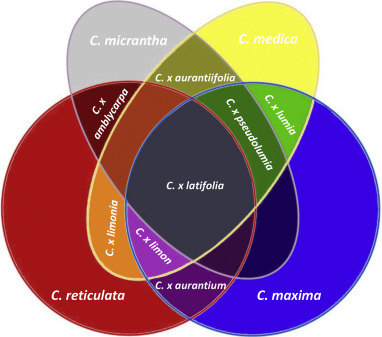Links & What I've Been Reading Q1 2022
Links
Machine Learning
1. Incredibly cool from deepmind: ML applied to ancient Greek fragments can generate restoration hypotheses for the missing text and locate the fragment's origin in both time and place. Paper in Nature.

These researchers built an AI for discovering less toxic drug compounds. Then they retrained it to do the opposite. Within six hours it generated 40,000 toxic molecules, including VX nerve agent and "many other known chemical warfare agents.
Sufficiently advanced AI alignment is indistinguishable from AI risk?
3. Fantastic Gwern theory-fiction: It Looks Like You're Trying To Take Over The World.
4. Also on LW, Brain Efficiency: Much More than You Wanted to Know:
Eventually advances in software and neuromorphic computing should reduce the energy requirement down to brain levels of 10W or so, allowing for up to a trillion brain-scale agents at near future world power supply, with at least a concomitant 100x increase in GDP. All of this without any exotic computing.
5. Also on LW, New Scaling Laws for Large Language Models.
Forecasting
6. Karger, Atanasov & Tetlock, Improving Judgments of Existential Risk: Better Forecasts, Questions, Explanations, Policies.
7. How good are generalist forecasters vs experts, really? Gavin Leech revisits the literature and argues against the superforecasters. They still do as well or slightly better than the experts, but not by much. I feel the way the results are presented is a bit misleading.
Metascience
8. Derek Thompson in the Atlantic on Silicon Valley science funding.
9. In what sense is the science of science a science?
What makes my spidey sense tingle is that the objects in any such theory are (in part) a hypothetical space of possible discoveries, of possible explanations of the world. I called it a theory of discovery just above, but it might equally well be called a theory of the unknown, or theory of exploration, or theory of theories. Of course, some of the objects of any such theory would also be amenable to more standard descriptions: things like exploration strategies, or group dynamics. But some would be a lot stranger: currently unknown types of explanation, currently unknown types of theoretical entity.
Economic History
10. WW2 Japanese internment camps? You guessed it, Good, Actually! Internment had a positive effect on long-run incomes on the order of 9-22%. And remember to burn the cities, too. h/t ADS
11. Some issues with Putterman & Weil (2010), judging by the new results it doesn't seem all that problematic to the deep roots lit?
Book Reviews
12. There's a new Landmark Edition out, Xenophon's Anabasis. Here's a short review.
13. ZHPL on TLP's Sadly, Porn.
14. Scott on the same (the reviews are complementary goods).
Covid
15. Vaccination Rates and COVID Outcomes across U.S. States finds that it takes about $5000 worth of vaccines to save a life. Would be interesting to see a comparison to molnupiravir in terms of dollars per life saved.
16. A report from a covid human challenge experiment. Hopefully this paves the path for a faster response against the next pandemic.
The Rest
17. Against the Naming of Fungi
The egotism and futility of these costly initiatives is quite mind-boggling as the human threat to biological diversity multiplies. Rather than competing with animal and plant taxonomists, mycologists should show pluck in asserting philosophical independence from the waning fields of zoology and botany. By turning our attention towards experimental questions and away from cataloguing, mycologists may escape the shackles of Linnean fundamentalism.
18. Related(?), SMTM on citrus taxonomy, "in which the Bene Gesserit attempt to breed the Kumquat Haderach".

19. Luttwak on China: The myth of Chinese supremacy
Always improbable, G-2 became impossible when Xi Jinping arrived. For him only G-1 is good enough. Not because he is a megalomaniac but the opposite: he thinks, accurately, that unless the Party establishes an unchallenged global hegemony, with its rule is deemed superior to democratic governance, Communist China will collapse just as Soviet rule did. He is right.
20. Indian National Stock Exchange CEO scandal:
The drama intensified in February, when the Securities and Exchange Board of India released a 190-page regulatory order disclosing that Ramkrishna had sent sensitive information to an outsider described as a yogi in the Himalayas. [...] The yogi was non-corporeal, she said, but corresponded using the email address [email protected]
21. On the role of mathematics in the neolithic revolution. "The mathematical abilities of Neolithic humans advanced in concert with the new requirements of agricultural life. These needs can be summed up into three categories: Surplus, Trade, and Time." Here's wikipedia on the Rhind Mathematical Papyrus which dates to the 16thC BC.
22. From the new Institute for Progress, Progress is a Policy Choice.
23. Ed West on the coming demographic issues: 'Children of Men' is really happening (actually understates the problem imo).
24. Theses and counter-theses on sleep. Seems like one of those things where there's tons of variation and you're probably best off doing some rigorous self-experimentation?
25. Death Toll of Price Limits and Protectionism in the Russian Pharmaceutical Market. In 2012, Russia put price caps and protectionist regulations on various pharmaceuticals. The result was a decrease in supply, leading to a striking increase in mortality from diseases those drugs protect against.
26. Fluvoxamine-caffeine interaction:
Just learned that fluvoxamine, a common SSRI used to treat depression and other psychiatric conditions, increases the half-life of caffeine in the bloodstream. Like, to an absurd degree:
27. Modeling assortative mating and genetic similarities between partners, siblings, and in-laws
We found evidence of genetic similarity between partners for educational attainment (rg = 0.37), height (rg = 0.13), and depression (rg = 0.08). Common genetic variants associated with educational attainment correlated between siblings above 0.50 (rg = 0.68) and between siblings-in-law (rg = 0.25) and co-siblings-in-law (rg = 0.09). Comparisons between the genetic similarities of partners and siblings indicated that genetic variances were in intergenerational equilibrium. This study shows genetic similarities between extended family members and that assortative mating has taken place for several generations.
28. New EA GWAS with N=3 million, 12-16% variance explained.
29. "Las Pozas ("the Pools") is a surrealistic group of structures created by Edward James in a subtropical rainforest in the Sierra Gorda mountains of Mexico. It includes more than 80 acres (32 ha) of natural waterfalls and pools interlaced with towering surrealist sculptures in concrete."
30. The Senseless, Tragic Rape of Charles Bukowski’s Ghost by John Martin’s Black Sparrow Press
31. Stalin's amused notes on Lysenko.
32. A letter from Claude Shannon to Warren McCulloch, in behalf of L. Ron Hubbard.
Audio-Visual
34. They found Shackleton's ship in the Antarctic, and it's perfectly preserved.
35. Kogonada's After Yang is one of my favorite new films in years. What if Roy Batty was a personal assistant, what happens to his adopted family after he dies? A poignant and wistful film about memory, death, and the legacy we leave behind us.
36. And here's DJ Shadow remixing King Gizzard & The Lizard Wizard.
What I've Been Reading
- How to Think Like Shakespeare: Lessons from a Renaissance Education, by Scott L. Newstok. A Romantic old-man-yells-at-clouds tirade about modern education practices. It didn't change any of my views, but it didn't really attempt to do so in the first place: Newstok is a reformist, while I am strictly an abolitionist—and therefore far outside the target audience. I find it hard to separate mass education from the commoditization of knowledge, while Newstok believes we can have our cake and eat it too. In any case, if you want a passionate argument in favor of high-quality education interspersed with Shakespeare quotes, this is the book for you.
- Dune, by Frank Herbert. Pretty great, Herbert constructs a deeply alluring world which pulls you in despite some rather hilariously implausible aspects. It's interesting how so much of the "plot" actually happens in the background. The audiobook is quite good.
- Dune Messiah, by Frank Herbert. I was told the sequels get crazy, and this is a pretty good start in that direction! Can't wait to see where this nonsense ends up. This is basically a book of palace intrigue and scheming, with a rich religious/predestination/weird time loop sauce on top.
- Star Maker, by Olaf Stapledon. I kept thinking that it felt like a really weird throwback to the 1920s-30s, then I looked it up and it was written in 1937. Whoops. It's a non-stop torrent of interesting science fiction ideas, but there's no continuity, no characters to latch on to, and the examination of the ideas stays at the surface level. It's just a series of "this happened, then this happened, then this happened" which I found rather boring.
- The Island of Doctor Death and Other Stories and Other Stories, by Gene Wolfe. Some fantastic stories in this collection, in particular I loved Feather Tigers, Death of Dr. Island, Toy Theater, and Seven American Nights. Many of them are in that classic Wolfe style where you have to piece together what's going on from tiny hints left in the text, and it's all a bit ambiguous in the end and so on. There's a lot of focus on religion and death (with two stories, The Hero as Werwolf and The Doctor of Death Island, being fairly explicitly death-ist).
- Orphans of the Sky, by Robert Heinlein. Fairly standard generation ship story. Juvenile and ham-fisted (there's a scene where the protagonist literally yells out "and yet it moves!"). Mutants and knife fights and all that. 12 year old me would've loved it.
- Wittgenstein's Nephew, by Thomas Bernhard. Bernhard documents his friendship with Paul Wittgenstein (not the pianist), a black sheep of the Wittgenstein family who suffered from various mental problems. They're both rejected by Austrian society, and they both reject it. Bernhard's attitude toward awards (he views them as a kind of insult and punishment) really sums up his relation to his country. A bitter book, sad and pathetic and miserly. Recommended if you're in the market for a feel-bad memoir.
- The Status Game: On Social Position and How We Use It, by Will Storr. There's quite a bit of overlap with The Elephant in the Brain, but Storr's book is obviously more focused on status. Also reminiscent of Goffman's Presentation of Self in Everyday Life. Lots of references to Boehm, Henrich, Kuran, Wrangham, etc. (You're probably better off going straight to the source?) If I had to choose between this and Elephant I'd go for Elephant, but they're fairly complementary so it won't be a waste of your time to read both. Parts of the book are focused on contemporary culture war issues, which felt a bit shallow and tiresome. Overall it's not bad though.
- The Biology of Moral Systems, by Richard Alexander. There's a great core here, but I wouldn't recommend it. The basic idea of approaching moral systems from an evopsych perspective is useful. However, huge swathes of text are wasted on dull and low-quality academic bickering, many of the specifics (eg the arguments on the development of religion) are completely off, and the last third of the book is dedicated to a mostly fruitless discussion of nuclear war and mutually assured destruction.

